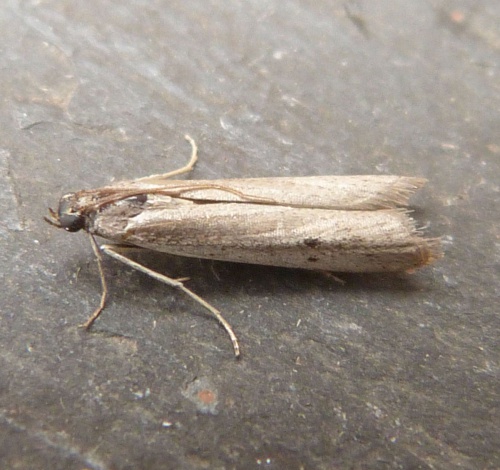Phycitodes maritima
Chalk Knot-horn
Wingspan 18 to 22 mm. This species is best identified by dissection of the genitalia.
Areas where the larval foodplants are present.
The moths fly from May to August, possibly in two generations.
The larvae feed on Yarrow and Ragwort (Senecio jacobaea), chiefly in the flower-heads.
Phycitodes maritima occurs locally throughout much of England, though it is commoner in the south and east. He species occurs inland as well as coastally, despite the scientific name. In the Butterfly Conservation's Microlepidoptera Report 2011 this species was classified as local.
It appears to be uncommon in Leicestershire and Rutland, where there are few records. L&R Moth Group status = D (rare or rarely recorded).
Leicestershire & Rutland Map
Enter a town or village to see local records
MAP KEY:
Yellow squares = NBN records (all known data)
Coloured circles = NatureSpot records: 2025+ | 2020-2024 | pre-2020
UK Map
Species profile
- Common names
- Chalk Knot-horn
- Species group:
- Moths
- Kingdom:
- Animalia
- Order:
- Lepidoptera
- Family:
- Pyralidae
- Records on NatureSpot:
- 6
- First record:
- 13/06/2003 (Skevington, Mark)
- Last record:
- 14/08/2021 (Leonard, Pete)
Total records by month
% of records within its species group
10km squares with records
The latest images and records displayed below include those awaiting verification checks so we cannot guarantee that every identification is correct. Once accepted, the record displays a green tick.
In the Latest Records section, click on the header to sort A-Z, and again to sort Z-A. Use the header boxes to filter the list.


